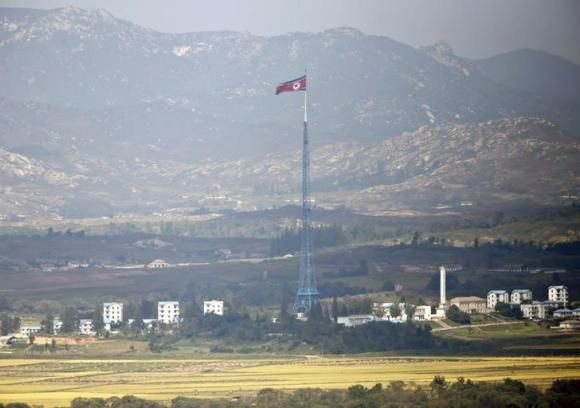BBC Plans To Launch North Korea Radio Station As Black Market Flourishes

North Korea’s growing black market may be the key to opening the pariah state to the outside world. The BBC is planning to begin broadcasts accessible within the country’s borders, employing shortwave radio as a means of sidestepping the nation’s laws against foreign media broadcasts.
The BBC World Service is hoping a dedicated channel could reach inside North Korea with the help of radio receivers that have been sneaked in through the country’s increasingly porous borders with either China or South Korea. A BBC representative told the Telegraph the planning is still in its early stages. If the British broadcaster were to make the move, it would join other media outlets such as the South Korea-backed KBS and the U.S.-supported Radio Free Asia and Voice of America in broadcasting content available in North Korea.
“One of the World Service’s key principles is to serve audiences in countries lacking media freedom,” the BBC representative said. “We are considering if we can develop a viable news service for the people of North Korea, although there are significant barriers.”
According to the Telegraph, an early plan pitched by the media organization led to concern among U.K. officials, who feared it could jeopardize the presence of Britain’s diplomatic mission in Pyongyang. However, officials changed their tune after reported pressure by the House of Lords, the upper chamber in the U.K. parliament.
Although Internet access and satellite television are mostly unavailable to the North Korean people, small radios and similar devices have made their way into the country through a flourishing black market.
According to Yeon-mi Park, a North Korean defector, a generation of young North Koreans called the Jangmadang, or Black Market Generation, are curious about the outside world and have unprecedented access to foreign media. “The private market has provided more than food and clothing -- it has also provided TVs, bootleg South Korean movies and K-pop videos, USBs and DVDs,” Park wrote in an op-ed piece published by the Washington Post. “As a girl in North Korea, I saw ‘Titanic,’ ‘Cinderella,’ ‘Pretty Woman’ and ‘Snow White’ -- not to mention WWE wrestling.”
According to CNBC, anybody caught with such products could still be punished by the ruling regime (drawing the death penalty, in some cases), but sheer will and hunger for information have many people taking the risk to engage with the outside world. “The leadership in North Korea knows what’s going on among its domestic citizens, especially the younger generation,” Jieun Baek, a Harvard University fellow who traveled to North Korea in 2013, said in the cable-television network’s report. “You can’t unlearn citizens’ knowledge of the outside world.”
© Copyright IBTimes 2025. All rights reserved.






















